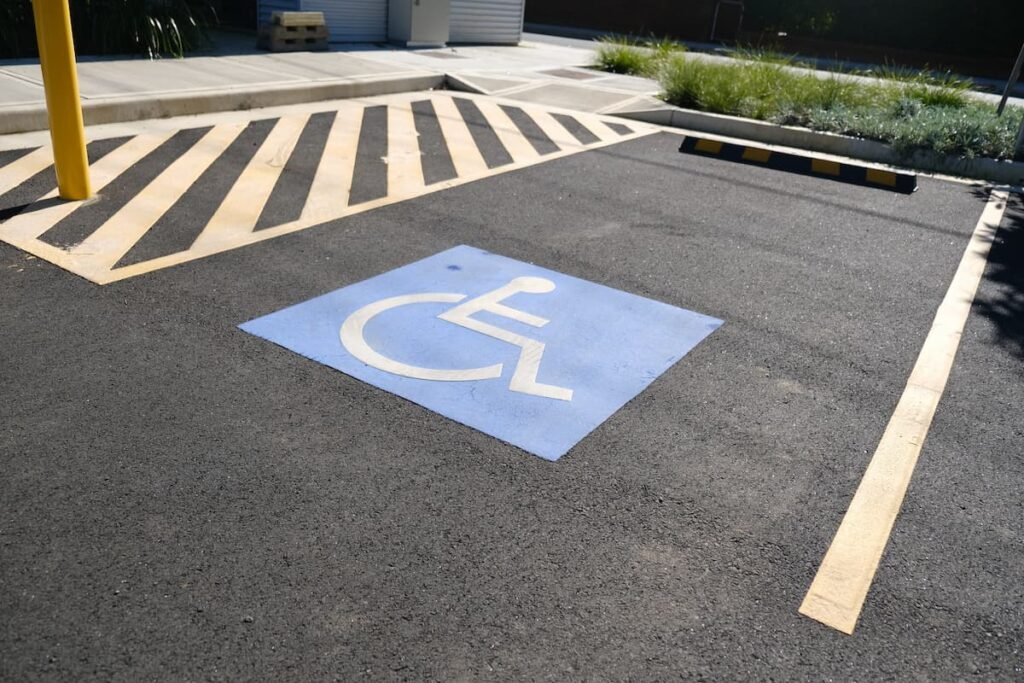In today’s digital age, having a professional website is essential for any business, including construction companies. A well-designed website not only serves as an online portfolio but also acts as a powerful marketing tool. For construction companies, a website can showcase their services, past projects, and client testimonials, significantly enhancing their credibility and attracting new clients. Without a strong online presence, potential clients may overlook your business in favor of competitors with more accessible and appealing websites. This article will explore the key features that make a construction company website effective and provide tips on how to implement them to ensure your website stands out in a competitive industry.
Why a Construction Company Needs a Website
Having a website is crucial for any construction company looking to establish a strong market presence. An online presence increases visibility and provides a platform to showcase your work to potential clients. A professional website builds credibility by presenting your business in a polished and accessible manner. It also serves as a central hub for potential clients to find important information about your services, view past projects, and read client reviews. Furthermore, a website can significantly expand your reach beyond local word-of-mouth and print advertising, drawing in clients who are searching online for construction services. In essence, a well-crafted website is a key component of modern business strategy, offering numerous benefits in client acquisition and retention.
Key Features of a Successful Construction Company Website
Clear and Professional Design
A construction company website should have a clear and professional design to make a strong first impression. The layout should be clean and organized, avoiding clutter that can overwhelm visitors. High-quality images and visuals of completed projects are essential as they provide a tangible representation of your work and capabilities. The design should reflect the professionalism of your business and align with your branding, using consistent colors, fonts, and imagery. A well-designed website not only attracts potential clients but also retains their attention, guiding them through your services and portfolio effortlessly. Investing in a good design is a crucial step in establishing a credible online presence.
Detailed Service Pages
Your website should feature detailed service pages that clearly describe the construction services you offer. Each page should include comprehensive information about the types of projects you handle, from residential to commercial construction. Adding case studies or project portfolios on these pages can provide potential clients with real-world examples of your work, showcasing your expertise and the quality of your results. Including client testimonials and project outcomes can further enhance the credibility of these pages. This approach not only informs visitors about what you offer but also helps them visualize how you can meet their specific needs.
Easy Navigation
Effective navigation is critical for any website, including those for construction companies. Your website should feature a user-friendly menu that allows visitors to easily find the information they need. Organize the content logically, with clear labels for different sections such as services, projects, about us, and contact information. A well-structured navigation system helps visitors quickly locate the relevant pages, improving their overall experience. Additionally, implementing a search function can further enhance usability, allowing users to find specific information without having to browse through multiple pages. Good navigation ensures that potential clients can access important details without frustration, encouraging them to stay longer on your site.
Contact Information
Providing easy access to contact information is a fundamental aspect of a successful construction company website. Your contact details should be prominently displayed, ideally in the header or footer of every page, so that visitors can reach out with minimal effort. Include multiple contact methods, such as a phone number, email address, and a contact form. A contact form should be simple and straightforward, asking only for essential information to make it easy for potential clients to get in touch. Additionally, consider integrating a map or location details if you have a physical office. Making it easy for visitors to contact you can lead to more inquiries and potential business opportunities.
Client Testimonials and Reviews
Including client testimonials and reviews on your website can significantly boost your credibility and attract new clients. Testimonials from satisfied customers serve as social proof of your skills and reliability, offering potential clients an insight into the positive experiences of others. Display these testimonials prominently on your homepage or dedicated testimonial page, and consider including photos or names (with permission) to add authenticity. Reviews can also be integrated into your service pages or project portfolios, highlighting specific feedback related to the services provided. Positive testimonials and reviews build trust and reassure potential clients that they are choosing a reputable construction company.
Responsive Design
A responsive design is essential for ensuring that your Construction company website functions well on all devices, including smartphones, tablets, and desktops. With more people accessing websites from mobile devices, it’s crucial that your site adapts to different screen sizes and resolutions. A responsive design ensures that your content is displayed correctly and remains easy to navigate regardless of the device being used. Additionally, a mobile-friendly website can improve your search engine rankings, as search engines like Google prioritize sites that offer a good user experience on all devices. Implementing responsive design helps reach a broader audience and provides a seamless browsing experience for all visitors.
Search Engine Optimization (SEO)
Search Engine Optimization (SEO) is vital for improving your website’s visibility on search engines like Google. Basic SEO practices include using relevant keywords related to the construction industry throughout your website’s content. Incorporate these keywords naturally in your service descriptions, blog posts, and meta tags to help search engines understand what your site is about. Additionally, optimize your site’s loading speed and ensure that it is mobile-friendly, as these factors can also impact your search rankings. Regularly updating your content and monitoring your website’s performance using tools like Google Analytics can further enhance your SEO efforts, driving more organic traffic to your site.
Blog or News Section
A blog or news section on your construction company website can be a valuable tool for engaging with visitors and improving your SEO. Regularly updated content, such as industry news, construction tips, and company updates, keeps your website fresh and relevant. This section provides an opportunity to showcase your expertise and keep clients informed about the latest trends and developments in the construction industry. Additionally, well-written blog posts can attract more visitors to your site through search engines, as they often target specific keywords and topics. A blog or news section also encourages repeat visits, as clients may return to read new posts and updates.
Call to Action
Effective calls to action (CTAs) are essential for converting website visitors into leads. A strong CTA prompts users to take specific actions, such as contacting you for a quote, signing up for a newsletter, or requesting more information. CTAs should be clear, compelling, and strategically placed throughout your website. Examples of effective CTAs for construction companies include “Request a Free Quote,” “Contact Us Today,” or “View Our Latest Projects.” Use contrasting colors and persuasive language to make CTAs stand out and encourage engagement. Well-designed CTAs guide visitors through the conversion process, increasing the likelihood of turning site visits into business opportunities.
Best Practices for Maintaining Your Website
Maintaining your website is crucial to ensure it remains functional, relevant, and secure. Regular updates to content, such as adding new projects or blog posts, keep your site fresh and engaging for visitors. Additionally, monitor your website’s performance using tools like Google Analytics to track visitor behavior and identify areas for improvement. Address any technical issues promptly, such as broken links or slow loading times, to ensure a smooth user experience. Collecting and responding to user feedback can also provide valuable insights into how your site is perceived and what changes might be beneficial. Consistent maintenance helps keep your website effective and enhances its role in achieving your business goals.
Conclusion
In summary, a well-designed construction company website is essential for building credibility, attracting clients, and showcasing your services. Key features such as a clear design, detailed service pages, easy navigation, and responsive design play a critical role in creating an effective online presence. Incorporating elements like client testimonials, SEO strategies, and strong calls to action can further enhance your site’s performance and user engagement. By regularly maintaining and updating your website, you ensure that it remains a valuable asset for your business. Implementing these features and practices can significantly contribute to the success of your construction company in the digital landscape.











